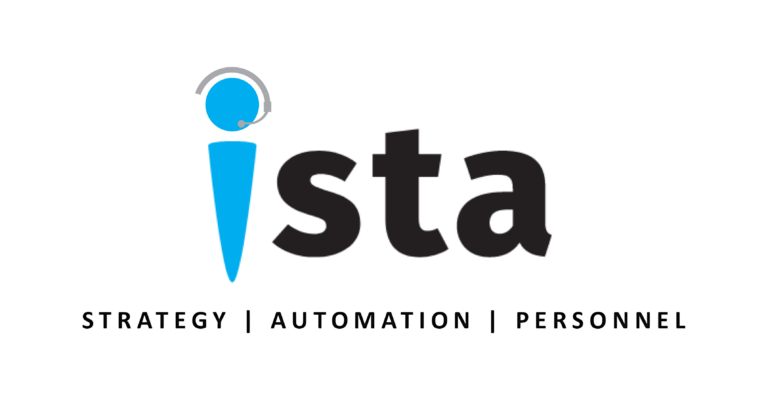The future of healthcare BPO innovation: Insights from the frontlines

The healthcare sector is a bedrock of any society, yet it’s currently facing immense strain. From persistent staff shortages to overwhelming administrative burdens, medical professionals are often diverted from their primary mission: patient care.
In this demanding environment, the need for agile, effective solutions has never been more pressing.
This is where healthcare BPO innovation steps onto the scene as a vital strategic ally.
In the 544th episode of the Outsource Accelerator Podcast, Nicole Barrish of ISTA Solutions gives insights on how they progress in the realm of healthcare outsourcing.
This article explores how BPOs are redefining and innovating to provide essential services, driving efficiency, and shaping healthcare’s future.
The changing landscape of healthcare BPO
The pressures on healthcare are undeniable, creating an urgent imperative for new solutions. Staff shortages persist across various medical roles, posing a significant challenge to patient care delivery.
This is a problem seen worldwide, with the talent shortfall expected to reach 18 million by 2030.
This scarcity is compounded by the sheer volume of administrative work. Medical professionals are frequently burdened by extensive paperwork, including complex invoicing, claims processing, and meticulous compliance documentation.
These tasks can divert valuable time away from direct patient interaction.
Furthermore, healthcare processes are inherently complex, often involving intricate workflows that span multiple departments and require nuanced understanding. This complexity makes streamlining operations a significant challenge.

Adding to these operational complexities, many large, established healthcare organizations can struggle with adopting new technologies and innovative practices.
The weight of legacy systems and traditional approaches can hinder swift adaptation and make it difficult to implement modern, efficient solutions.
This creates a fertile ground where healthcare BPO innovation can truly make a difference by offering specialized support and agile solutions.
Pioneering healthcare BPO innovation: Real-world examples
Leading BPOs are developing ingenious solutions that fundamentally change how healthcare services are managed:
Telehealth support and remote patient monitoring
BPOs are increasingly providing robust backend support for telehealth platforms. This includes scheduling, managing patient intake, verifying insurance, and handling technical support for virtual consultations.
ISTA Solutions has implemented a model where remote nurses in the Philippines provide real-time support in U.S.-based long-term care facilities using robotic interfaces.
“They had a robot in the facility with a screen, and it was our nurse on the other side,” Nicole shared. “A medical assistant would place the stethoscope on the patient, and the nurse could see the diagnostics in real time.”
This approach addresses the critical nursing shortage in the U.S. while maintaining high standards of care. It’s a clear example of how offshore healthcare talent can be leveraged not just for administrative work, but also for direct patient support in innovative ways.
Virtual medical scribing
Physician burnout is a growing concern—and documentation is a major contributor.
A growing area of healthcare BPO innovation involves virtual medical scribing. Remote scribes, often located offshore, listen in on patient visits in real-time or from recordings.
They meticulously document clinical notes, update electronic health records (EHRs), and prepare necessary paperwork.
For their part, ISTA has responded with a virtual scribing solution that allows offshore team members to listen in on patient visits and complete documentation in real time.
“Once the doctor leaves the room, that’s it—the notes are up,” says Nicole.
This significantly reduces the administrative load on doctors and nurses, freeing them to concentrate fully on the patient during appointments.
Specialized administrative and compliance support
BPOs offer highly specialized administrative support that is crucial for healthcare operations. This includes intricate medical billing and coding services, ensuring accuracy and maximizing reimbursement.
They also provide comprehensive claims processing, accounts receivable management, and compliance auditing. These services help healthcare providers adhere to complex regulations like HIPAA and maintain financial health.
This specialized support allows providers to navigate bureaucratic demands more efficiently.
ISTA also supports these kinds of facilities.
“We have nurses working the night shift, reviewing patient charts,” says Nicole. “So the director of nursing comes in the morning to a report of red flags.”

The role of technology and the human touch in BPO healthcare innovation
The future of healthcare BPO innovation is intricately woven with the strategic integration of advanced technology and the indispensable human element.
AI as an enabler, not a replacement
Artificial Intelligence plays a pivotal role in enhancing efficiency within healthcare BPO. AI-powered tools can automate repetitive data entry, assist with claims processing by identifying discrepancies, and power chatbots for initial patient inquiries or appointment scheduling.
Human oversight remains critical for complex decision-making, empathetic patient interactions, and handling unique cases requiring judgment. This is true even as AI streamlines routine tasks and provides data insights.
“AI is the future,” Nicole says, “but it’s not quite there yet. It still needs a human component.”
Strategic partnership approach
BPOs are evolving into true strategic partners for healthcare organizations. This involves a collaborative model where the BPO doesn’t just execute tasks but actively advises on process optimization, technology adoption, and best practices.
They work as an extension of the client’s team, deeply understanding their specific challenges and objectives.
This partnership approach ensures that the BPO’s solutions are tailored, integrated, and genuinely contribute to the client’s long-term success and patient care goals.
Navigating client appetites for tech
The pace of technological adoption varies significantly among healthcare organizations. BPOs must be agile in understanding and responding to their clients’ readiness for new technologies.
Some clients may be eager to implement cutting-edge AI or automation. Others, however, may prefer a more phased or traditional approach due to legacy systems, budget constraints, or a cautious culture.
ISTA is actively exploring AI tools—from accent translation software to automated response systems—but always with a balanced approach. Clients aren’t always ready to adopt costly solutions, and in many cases, the human touch remains irreplaceable.
“When you’re dealing in healthcare, you don’t want to speak to a robot,” Nicole adds. “You want someone who can understand that you’re a person.”
BPOs must demonstrate flexibility and a clear understanding of the client’s appetite for technological change to ensure successful and sustainable innovation.
The future of healthcare BPO innovation
Intensifying healthcare demands mean BPOs will play a vital role, offering nimble, tech-enabled solutions. Traditional healthcare systems often struggle to implement these independently.
For ISTA and the broader industry, the future of healthcare BPO innovation lies in the fusion of people, process, and technology.
It’s about solving real problems—like staff shortages, regulatory complexity, and clinical inefficiency—while supporting the core mission of healthcare: better patient outcomes.







 Independent
Independent




